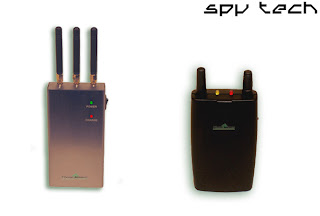cell phone jammer
Cell Phone Jammer

Cell Phone Jammer
Smartphone interactions on vehicles, at train channels and in dining establishments can be annoying to other individuals and they can even create community protection concerns for police officers, but is it ever OK for a third-party to prevent those calls?
The concern has been getting extra attention of late amongst a Chicago person's use of a mobile cellphone jammer on a bus and the Government Marketing and sales communications Commission's ask for for community feedback about whether police officers should be able to turn down mobile systems in certain situations.
According to the Los Angeles Times, there's reasonable individuals get disrupted by the talk around them.
Researchers at Cornell School discovered that hearing half of a persons discussion throws individuals and can actually lower their mental ability.
Apparently, individuals have difficulties neglecting what the scientists called a "halfalogue." They said it's because individuals can't estimate the conversation design of a halfalogue like they can with a conversation or two-way discussion.
As vexing as overheard mobile interactions can be, what the Chicago man was doing is technologically against the law. He was found by NBC researchers who discovered that he was using a mobile cellphone jammer to affect the phone calls of other drivers whose mobile cellphone talk he discovered aggravating and impolite.
"We tell and notify customers that it is a abuse of federal law to use a mobile jammer or similar devices that deliberately prevent, jam, or intervene with certified radio communications such as mobile phones, police mouth, GPS, and Wi-Fi," states the FCC on its website.
Once the frustrated bus participant carrying the mobile cellphone jammer acquired what he was doing was unlawful, he said he would stop.
At the same period, seemingly the concern of whether a third-party has the right to prevent mobile signals isn't actually cut and dry.
In fact, the FCC is currently asking for community feedback about whether it's ever appropriate for police officers companies to turn down mobile systems in the name of community protection, as San Francisco's Bay Area Quick Transportation did last Aug when it tried to prevent a demonstrate.
In the FCC's ask for for feedback [PDF], the agency stated that about 70 percent of 911 urgent situation phone calls in the U.S. now come from mobile cellphone devices but some police officers companies are concerned that mobile cellphone devices can be used to do dubious things such as detonate explosives or arrange chaotic display enemies.
"Our democracy, our community, and our protection all require communications systems that are available and open," FCC Chairman Julius Genachowski said in a declaration. "Any disruption of wireless services increases serious legal and policy issues, and must meet a very high bar."




Post a Comment
0 Comments